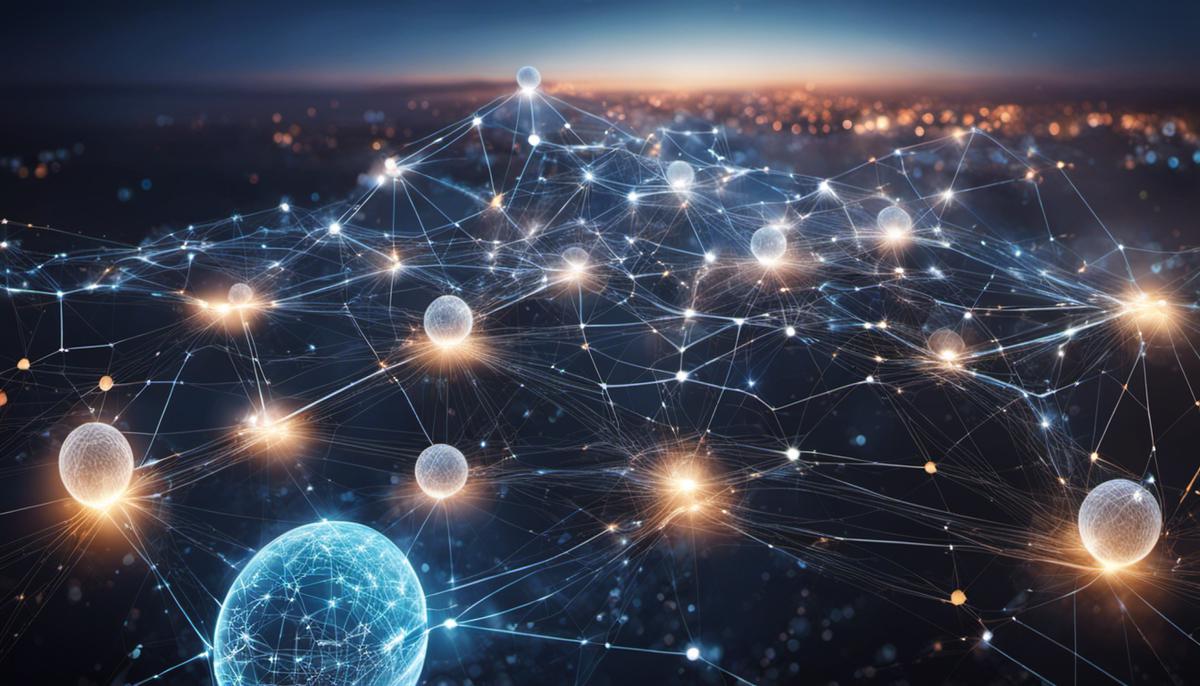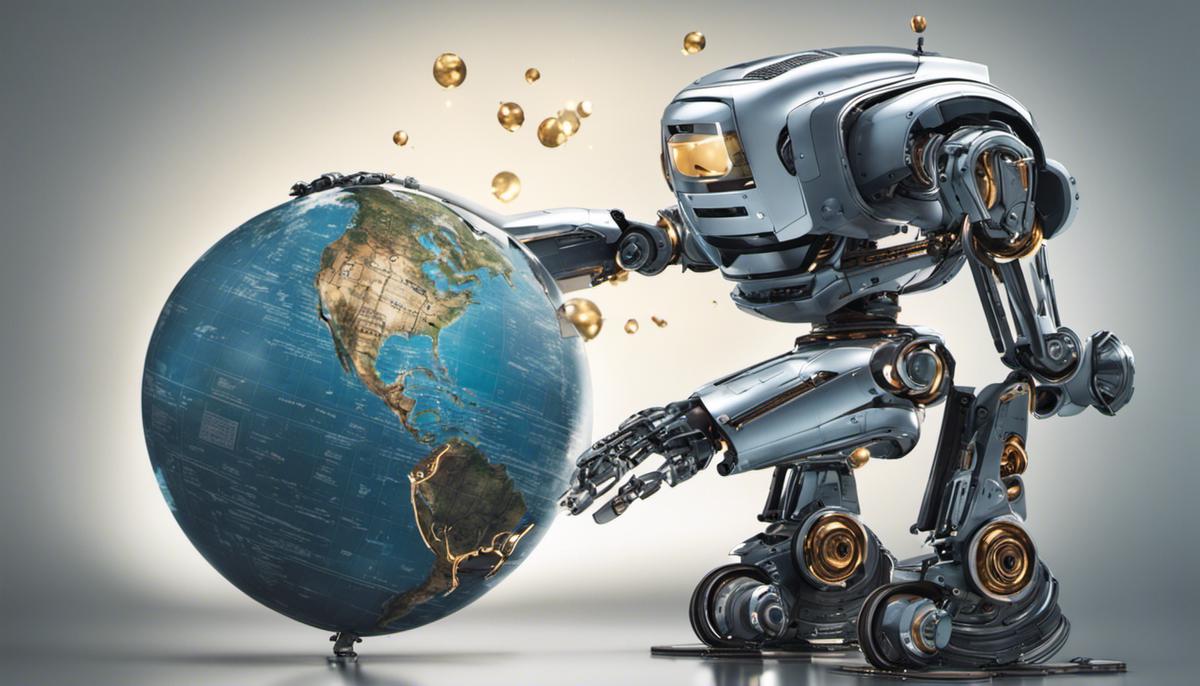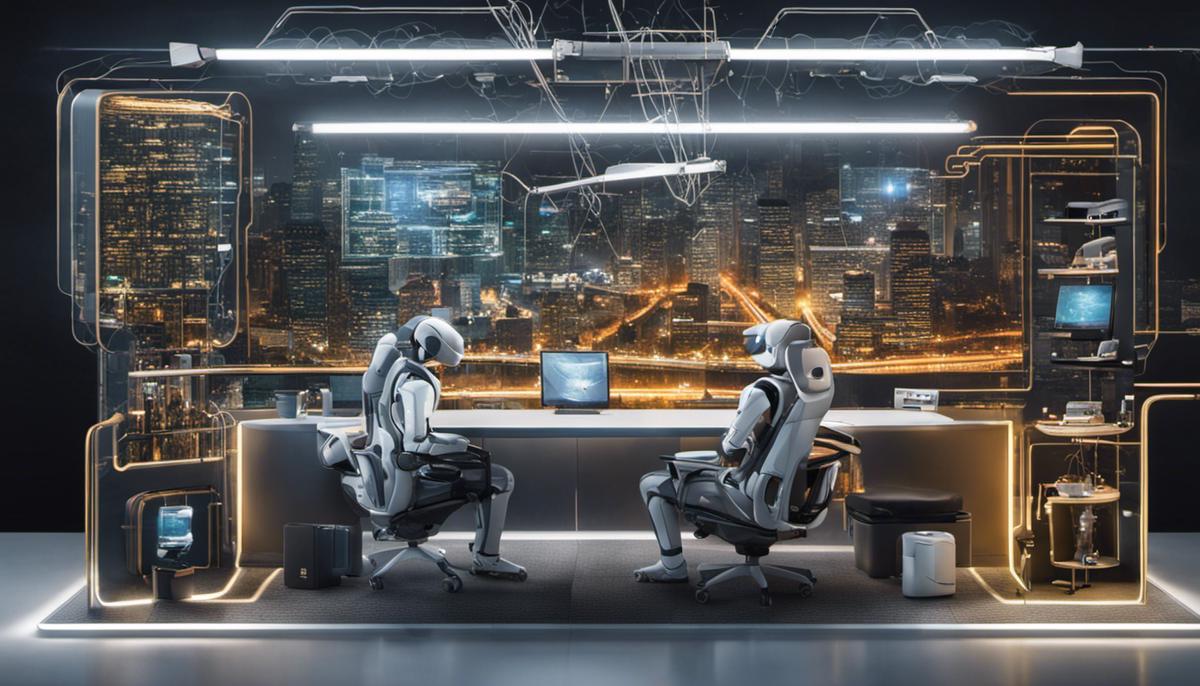Navigating the corridors of modern innovation, the rapidly evolving landscape of artificial intelligence (AI) stands as a groundbreaking force set to reshape the world as we know it. In an era where technology consistently outpaces our ability to comprehend its vast implications, understanding AI, its core principles, and varied types like machine learning and deep learning has never been more crucial. As this force penetrates deeper into various sectors, introducing fresh paradigms, a comprehensive exploration of AI is necessary for our grasp on the present and guideposts to our future. With its potential to transform employment, the economy, and address global issues such as climate change and healthcare, AI’s ethical considerations and broader societal repercussions are emerging frontiers needing careful contemplation.
Understanding Artificial Intelligence
Understanding Artificial Intelligence
Artificial Intelligence, or AI, is the broad concept of machines being able to carry out tasks in a way that we would consider intelligent. Essentially, it involves imbuing machines with the ability to understand, learn, and apply knowledge. That understanding and application of knowledge can include interpreting complex data, recognizing patterns, learning from experiences, adjusting to new inputs, and performing human-like tasks.
The Mechanics of AI: Machine Learning and Deep Learning
At the core of artificial intelligence are machine learning and deep learning. Machine learning is a subset of AI that refers to the concept that machines can learn and adapt through experience. It focuses on the development of computer programs that can access data and use it to learn independently. The learning process is automated and improves the accuracy of predictions or decisions made by machines without being explicitly programmed.
Deep learning, a further subset of machine learning, uses neural networks with many layers (hence the term “deep”) to carry out the process of learning. It can process a wide range of data resources, recognize patterns, and make decision-making faster while providing accurate results.
Different Types of AI
Artificial Intelligence can be categorized into two types – narrow AI and general AI. Narrow AI is designed to perform a single task and operates under a limited context, such as voice commands in home assistants like Amazon’s Alexa or Apple’s Siri. On the other hand, General AI systems can, in theory, handle any task that a human being could. They can understand, learn, adapt, and implement knowledge in a broad range of tasks. However, general AI systems are, in the current time, largely theoretical, and we haven’t yet achieved this level of complexity with AI.
AI Deployments in Different Industries
As of now, AI is already integrated into various industries and sectors bringing about transformative changes. In healthcare, AI systems are being used to analyze data to identify disease patterns or risk factors and to make better diagnoses. The financial industry uses AI for fraud detection, investment modeling, and customer service with the help of chatbots.
Artificial Intelligence has a significant presence in the automotive industry too. Self-driving cars, for example, are powered by AI systems that can recognize objects around them and make decisions. In the retail sector, AI is used in forecasting and inventory management, as well as customer service.
Unraveling the Future of AI
In today’s rapidly evolving technological world, artificial intelligence (AI) is emerging as the next frontier that holds limitless possibilities. With an ever-growing range of applications, AI is pushing the boundaries, transforming uncharted fields, and radically changing the way we live and work.

Transformative Impact of AI on Society
Shifting Economy: The Impact of Artificial Intelligence
The advent of AI is not merely limited to technology; it is redefining the dynamics of traditional businesses and, consequently, impacting the economy. Sectors like healthcare, finance, and manufacturing, among others, are already reaping the benefits of AI, thanks to increased productivity, streamlined operations, and minimization of human errors. In fact, a PwC report estimates that by 2030, AI could inject an incredible $15.7 trillion into the global economy.
Beyond the fiscal impact, the influence of AI on employment presents an intriguing picture. While there are concerns that AI-induced automation might eradicate jobs, particularly in areas like manufacturing, transportation, and administrative work, there’s another perspective too. AI, with its potential to spawn new sectors and the subsequent rise in demand for AI-related skills, is anticipated to generate more jobs than it eliminates.
Ethical Considerations Regarding AI
As AI begins to permeate every facet of our lives, there is a growing call for a comprehensive ethical framework to guide its use. Several key ethical issues need to be addressed, such as privacy, bias, transparency, and accountability.
Privacy is compromised when large amounts of personal data are harvested to train AI models, potentially without user consent. Bias is another significant issue, as biases encoded into AI models can lead to skewed and unfair outcomes. For instance, a hiring AI could discriminate against certain demographic groups if it’s trained on biased historical hiring data.
Furthermore, transparency and accountability are core challenges. As AI models become more complex, understanding their decision-making processes becomes harder – a problem referred to as the “black box” problem. Accountability for AI system-made decisions is also a critical concern, as it’s difficult to establish responsibility when something goes wrong.
AI and Global Issues
AI has immense potential to tackle pressing global issues like climate change and healthcare. In climate change, AI can be instrumental in predicting and modeling climate patterns, suggesting mitigation strategies, optimizing energy usage, and even creating new materials for carbon capture.
In healthcare, AI is already showing promise. AI can assist doctors in diagnosing diseases, predicting patient outcomes, personalizing treatment plans, and speeding up drug discovery. During the COVID-19 pandemic, AI was used to help predict infection rates, analyze public sentiment towards public health measures, and even help in vaccine development.
AI could also be instrumental in addressing resource allocation, food production, and tackling other significant global challenges like poverty and inequality. However, the deployment of AI in addressing global issues must be undertaken with careful ethical considerations, ensuring that AI tools are used to enhance human well-being and promote fairness.
Embracing the Future of AI
At the forefront of technological progression lies the unstoppable potential of AI. This pioneering field is now directing its energies towards forging AI systems that are more comprehensible, moral, and proficient. The stirring concept of explainable AI (XAI) is taking flight, promising to demystify the often cryptic decision-making processes of AI. Alongside, there’s an escalating focus on the ethical consciousness of AI, aiming to devise algorithms and systems that are impartial and respectful of user privacy.
Yet, this promising horizon comes with its distinct set of challenges. We may anticipate economic and societal upheavals, complicated ethical dilemmas, and discussions around privacy and accountability. Moreover, a pertinent need exists for international agreement on AI governance to jeopardize the ill-use of AI technologies. Addressing these obstacles, the undoubted potential of AI to affect profound improvements in our day-to-day life, economic structure, and global society solidifies its urgent significance in future progress.

Future of AI: Tech advancements and their implications
The Accelerating Progress of Artificial Intelligence
An accelerated pace of development is evident in the arena of Artificial Intelligence (AI), impacting numerous sectors and everyday life aspects. No longer limited to executing simple tasks, AI today pervades advanced areas, including learning, prediction, and decision-making. Notably, we are yet to fully explore its comprehensive potential. The anticipated trajectory of AI innovation could significantly transform industries, individual lifestyles, and societal norms in unimaginable ways.
Charting the Future with AI Technology
Future AI innovations are set to herald significant breakthroughs in areas such as machine learning, natural language processing, neural networks, robotics, and autonomous systems. Machine learning and neural networks could drive the advent of AI that learns, evolves, and flexibly adapts to new tasks and intricate problem-solving.
Concurrently, progress in natural language processing is anticipated to create AI that comprehends and responds to human language with a sophistication that surpasses current capabilities. This could help in eliminating the communication gap between humans and machines. Autonomous systems have the potential to reinvent transportation – the concept of driverless vehicles is just a sneak peek. In addition, robotics may evolve to efficiently perform not merely mundane tasks but also complex ones that currently necessitate human competencies.
Innovation in AI: Reshaping the Future
Predictions suggest that the impact of AI will be such that many aspects of life in the future will be reshaped. For example, AI could alter the job market, automating manual, routine tasks and potentially creating new industries based around AI technologies.
On a societal level, AI has the potential to fundamentally change how we interact with each other and with technology. It can provide personalized recommendations, virtual assistance, and even simulate human emotions and responses.
Furthermore, AI could revolutionize the healthcare industry, aiding in diagnoses, personalized treatment plans, and even surgical procedures. AI systems might streamline complex medical data analysis, quickly identifying patterns and correlations that would otherwise be missed.
AI in Personal Lives
AI will likely permeate personal lives in the foreseeable future. Smart homes, where appliances and systems are interconnected and remotely or voice-controlled, are becoming the norm. This network is expected to include AI-powered household robots that can carry out tasks ranging from cleaning, cooking to more sophisticated jobs.
Potential new applications of AI
AI has countless potential applications that could emerge as the technology advances. It may be used in weather forecasting, prediction of natural disasters, aiding in crisis management, effectively mitigating the devastating impacts.
AI could also play an essential role in energy management, optimizing energy usage and contributing to more sustainable living. Furthermore, AI-powered educational tools could personalize learning, adapting content and pacing to an individual’s strengths and weaknesses.
Impact on Society
While AI advancements promise exciting possibilities, they also raise important ethical and societal considerations. AI decision-making will have to be transparent and explainable, particularly whenever critical decisions that affect human lives are automated. Moreover, as AI continues to automate tasks, society might face challenges including job displacement, privacy concerns, and security threats.
This exploration into the next frontier of AI holds immense potential, indicating an exciting future that’s dramatically different from what we know today. The possibilities seem endless and with each breakthrough, doors to new advancements and applications swing wide open. These represent the tipping point that will lead to more dramatic changes in how we live, work, and interact with the world around us.

As we stand on the precipice of futuristic possibilities, the profound footprint of artificial intelligence’s continuing evolution is undeniable. From imminent tech advancements in AI to speculated transformative applications, the canvas of the future is adorned with a blend of challenging shifts and exciting opportunities. While the scientific community continues to drive the wheels of AI innovation, it is relegated on us to stay informed, ensuring we marshaled its potential ethically and prudently. As our journey unfolds, we must remember that the goal of AI, in any form or application, should uphold the human spirit’s enrichment and drive the global community towards sustainable advancements.